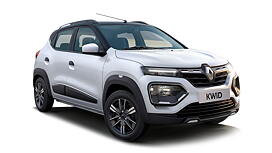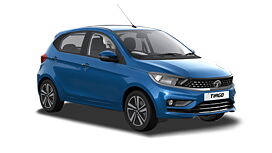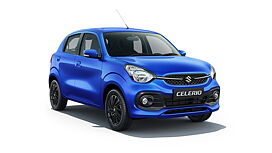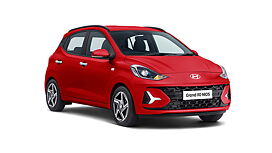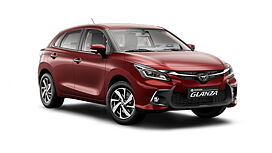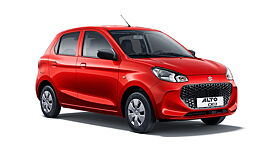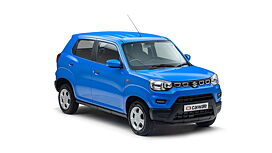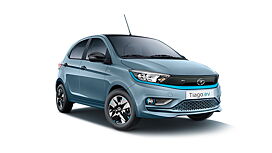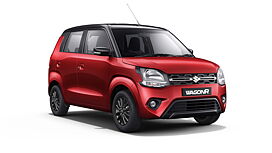Refreshed look & styling with old 800 tag
User Review on Maruti Suzuki Alto 800 [2012-2016] Lxi
3.0 Exterior | 3.0 Comfort | 4.0 Performance |
4.0 Fuel Economy | 4.0 Value for Money |
The best-selling car in the country, the Maruti Suzuki Alto is about to go through a sea change. The first model change in 11 years, the Alto has been made better in every way, taking some of the learnings from the outgoing model as well as the ultra successful K10 version that hit showrooms just two years ago.
So let's clear some things first. The Alto 800 won't replace the Maruti 800 - the old workhorse will continue to soldier on in the BS-III form. Secondly the Alto K10 too will continue in current avatar. That leaves the 800cc version of the Alto and that's what this one will replace. It will come in a total of seven trims, three of which will be offered with CNG but more on that later.
On the outside the new Alto 800 looks strikingly similar to the A-Star and seems to have borrowed a lot of design cues from the current Japanes Alto. The bug-eyed headlamps and the huge black grille along with the thin chrome moustache on the grille lend it some newness, though familiar. Strangely enough, there is some resemblance to the upcoming, facelifted version of the Ford Figo as well, though we believe it's more coincidence than anything else. The large expanse of metal on the flanks, the tall roof and the thick C-pillar are all in keeping with the Japanese version. Move to the tail-end and you find new, stylised tail lamps clear lens and dimples on the boot that are more to add stiffness to the whole package. The roof too gets stiffeners to add to the overall vehicle's rigidity while keeping it light. Riding on 12-inch wheels, the Alto 800 looks a bit under-tyred at first and there is a certain sense of missing proportion, but then again it is designed for a purpose - inexpensive commuting.
While the platform is borrowed from the last car, it's an improvement on all fronts. The monocoque is new and is stiffer than the last car while the overall length has come down by 100 mm - 55 mm up front and 45 mm at the rear. This has been done since the last car wasn't as well packaged with lots of empty space in the engine bay. The smaller dimensions mean ease of use in the city, which is always a plus.
On the inside, the dash is a new design. Gone are the rectangular air-vents all around to a combination of circular and rectangular ones that rest in the nacele on the centre. There is just a single dial in the instrument console with a host of tell-tale lights, but the amount of storage spaces seem to have gone up. You now get an area just above the glove box to store knick knacks, more space around the central tunnel to place large bottles or coins and a door pocket on the driver side as well as storage space just under the driver-side air vent. You get a choice of beige or grey trim on the inside and even though the beige trim does look decent, we'll stick with grey for obvious practical reasons. It also now comes with power windows for the front passengers in the top-end LXi trim as well as the option of a driver airbag for the first time on the Alto. Sadly there is no option of ABS yet.
Maruti Suzuki has also managed to improve space given the reduced length. Since wheelbase remains the same, Maruti Suzuki engineers have managed to improve headroom by 15 mm due to the increased roof height, 10 mm width by making the door trim thinner and 15 mm of additional legroom at the rear by making scoops in the front seats - ala the K10. You also get single piece seats up front while the rear seat is pretty much the same as the outgoing car.
Powering the car is an improved version of the F8D engine, a motor that has pretty much made the company the powerhouse it is in India today. Changes include the use of a plastic intake instead of an aluminium one, a lightened crankshaft and connecting rod, new low friction bearings, new low tension piston rings and short skirt pistons. Besides improving the compression ratio, the engineers have also placed an improved, cable-type gear shifting mechanism with detent-pin technology (seen on the Estilo and Wagon R) and diagonal shift assistance from fifth to fourth. All these improvements have resulted in a 11 per cent improvement in torque to 7 kgm@3500 rpm and 47.5 bhp@6000 rpm, up from 44 bhp earlier.
These changes can be instantly felt once you are on the road. Gone is the typical three-cylinder 'knocking' at low speeds in high gear. Instead you get a smoother transition through revs and a more linear torque curve that pulls the vehicle through. While we didn't strap on our performance equipment, we wouldn't be surprised if the new Alto 800 is up to one second quicker to 100 kph than its predecessor. The gears fall into place better and smoother with less of the rubbery feel of the last car. The engine note is just as good as it was, but it's the overall driveability that's made huge strides. Maruti claims a massive improvement in fuel efficiency - 22.7 kpl in ARAI tests.
The changes to the monocoque and the addition of gas dampers have made the car dynamically better too. It rides a wee bit better and is less bumpy. But it steers and handles tighter and is less prone to understeer than before. It's only the tyres that are the weak-link in the package. They aren't as grippy as you would want them to be and shifting to 13-inchers should improve matters a bit. The steering has good weight and the vehicle turns in beautifully thanks to the revised stiffness and weight distribution.
There are lot of improvements and takeaways from the new Alto 800, most of which are incremental rather than substantial. And yet it's a perceptibly better car that has ironed out most, if not all the shortcomings of its predecessor. When it goes on sale on October 16th, be rest assured that this winner for Maruti Suzuki will just entrench itself even more firmly.
Milage, Contemporary Exterior Design, Fresh Interiors, Superior Drive Experience, Best-in-ClasNo Power Steering in base and Lx varientReviews you may also consider
- Home
- Maruti Suzuki Cars
- Alto 800 [2012-2016]
- User Reviews
- Refreshed look & styling with old 800 tag
